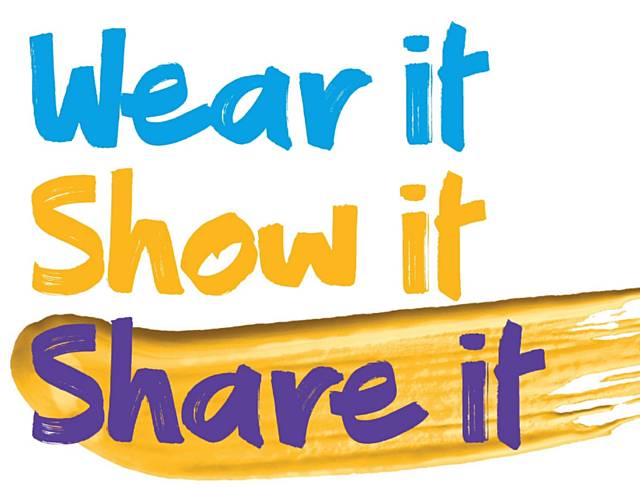Thousands at risk as mini-stroke signs are ignored
Date published: 29 October 2012

The Stroke Association is launching the Stroke Solidarity String, the new worldwide symbol for stroke, to mark World Stroke Day
Thousands of people in the North West are at risk of stroke because they fail to recognise the signs of a Transient Ischaemic Attack (TIA, also known as mini-stroke), according to the findings of a new poll launched today on World Stroke Day (29 October 2012).
A Stroke Association survey of people in the North West revealed that:
- Nearly three quarters (74%) of people did not recognise the symptoms of a TIA, with over one third (35%) believing they were symptoms of a heart attack.
- Nearly nine out of ten people (86%) would be worried if they experienced the symptoms of a mini-stroke, yet over two thirds (69%) wouldn’t take emergency action and go to hospital.
- Over two thirds of respondents (71%) had never heard of TIA and over one third (38%) were unaware that a TIA was a warning sign of a major stroke.
Over 46,000 people have a TIA every year in the UK. Symptoms can include facial weakness, speech problems and pins and needles down one side of the body, but they often last for just a short time.
Earlier research carried out at the University of Oxford and funded by the Stroke Association revealed that one in ten patients who has a TIA will go on to have a major stroke within a week without treatment. The study predicted that if all patients experiencing a mini-stroke in the UK received emergency treatment, almost 10,000 strokes could be avoided each year.
Professor Peter Rothwell, lead researcher of the project says: “A TIA is an emergency and a significant proportion of people will go on to have a major stroke if they don’t seek urgent medical attention. However, this poll suggests that the signs of a TIA are still being ignored. This needs to change.”
Angela Walkden, Head of Operations for Stroke Association North West, says: “The results of this poll are very concerning. Over 150,000 people have a stroke every year in the UK but up to 10,000 of these could be prevented if more people were aware of the symptoms of TIA and sought out emergency treatment. Not only would this save thousands from a lifetime of disability, it would also save the health service a considerable sum.
“Too many people remain unaware of the huge risk of stroke following a TIA. This needs to change. Anyone who experiences the symptoms, regardless of whether they disappear within a matter of minutes should go to hospital immediately. Assume it’s a stroke until it’s proven not to be by a medical professional.”
A TIA is a stroke-like event, which is caused by a temporary lack of blood flow to the brain. Like a major stroke, it can be diagnosed using FAST, but the symptoms are only temporary:
Facial weakness – has the person’s face drooped, usually down one side
Arm weakness – is the person able to lift both arms above their head
Speech problems – does the person’s speech sound slurred
Time to call 999 – if one or more of these symptoms are present call 999 immediately.
The Stroke Association is also launching the Stroke Solidarity String, the new worldwide symbol for stroke, to mark World Stroke Day. The charity is encouraging everyone to familiarise themselves with the symptoms of TIA and stroke and show their solidarity in the fight against stroke. You can purchase your own string from: www.stroke.org.uk/solidaritystring
Do you have a story for us?
Let us know by emailing news@rochdaleonline.co.uk
All contact will be treated in confidence.
Most Viewed News Stories
- 1Drugs and cash seized during morning raids at suspected stash houses
- 2Ogden family announces intention to invest £2m in Rochdale AFC
- 3Middleton school hails another outstanding inspection result
- 4Former councillor and hospital campaigner Jean Ashworth has died
- 5Man convicted after police car filmed driving dangerously in Kirkholt
To contact the Rochdale Online news desk, email news@rochdaleonline.co.uk or visit our news submission page.
To get the latest news on your desktop or mobile, follow Rochdale Online on Twitter and Facebook.


